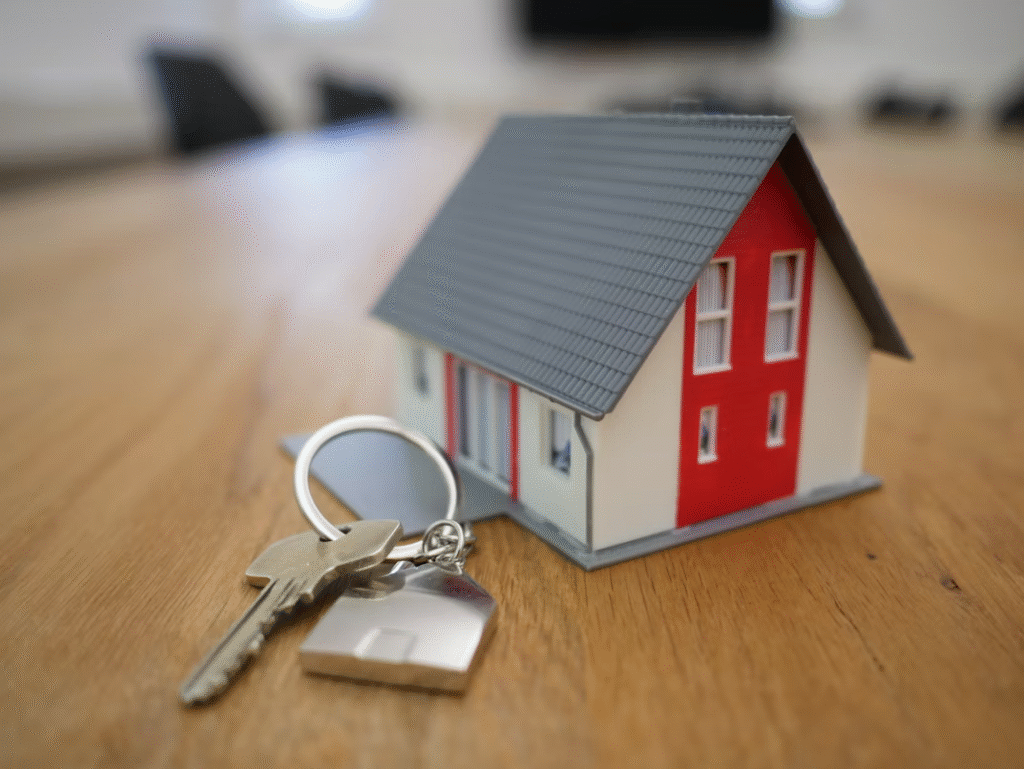Managing property can feel like a constant balancing act. Between rent collection, maintenance requests, and staying on top of lease agreements, it’s easy for small details to slip through the cracks. The work can be rewarding, but it also requires patience, organization, and the right systems to stay on track. When you use management tools effectively, you’ll notice an immediate difference in time, accuracy, and overall peace of mind.
Every landlord or property manager eventually reaches a point where simple spreadsheets and sticky notes no longer cut it. With more tenants, more regulations, and more paperwork to think about, technology can take away much of the pressure that comes with running properties.
In short, it’s about trying to work smarter instead of harder by letting the right software handle the tasks that take up your time.
Source: Unsplash (CC0)
Streamlining lease management
Leases are the foundation of any rental business, but they can also be one of the biggest sources of stress when managing property. Every contract comes with key details like start dates, rent reviews, renewal clauses, and maintenance responsibilities, and these need to be tracked carefully. Trying to manage all of that manually often leads to missing updates or confusion later on.
But that’s where a tool like a lease abstract software helps out. It helps to organize every lease into a clear and easy-to-read summary, helping landlords find specific information quickly without digging through pages of legal text or paper documents. With everything stored digitally and being searchable, it becomes a whole lot easier to stay organized and reduce the risk of overlooking critical dates or terms.
Handling your disputes with confidence
Even the most careful landlords will end up in disagreements with their tenants at some point. Be it repairs and rent increases or deposits and late fees, small misunderstandings can quickly spiral out of control and become big headaches. Knowing how to manage common disputes with tenants is one of the most important parts of keeping relationships professional and stress levels low.
Having the right tools to help will definitely make this process smoother. Digital communication records, maintenance logs, and even photo documentation can all support fair and transparent discussions when there are disputes. When everything is well-documented, both sides can refer to clear evidence rather than relying on memory or assumptions.
Keeping communication clear and consistent
Good communication with your tenants makes property management easier on everyone involved. When tenants know who to contact and how to do it, their problems get solved faster and frustrations stay low. With that said, email chains and phone calls can easily get messy, so having a centralized system that tracks all of your messages keeps things simple.
Platforms that include chat features, maintenance request forms, and automatic updates make it easy for both you and your tenants to stay informed. It helps build trust and reduces the back-and-forth that can drag out simple conversations.
Automating maintenance and inspections
Maintenance is one of the most time-consuming aspects of managing your property. Even small repairs can pile up quickly, and keeping track of progress across multiple units can end up being overwhelming. Using property management software to log, prioritize, and assign work orders ultimately saves time and keeps maintenance running smoothly.
Automation also helps with property inspections. Scheduling regular visits, storing inspection reports, and tracking completed work all help maintain property standards without constant manual oversight. Over time, this creates a more efficient system that benefits both landlords and tenants.

Source: Unsplash (CC0)
Simplifying finances and reporting
Handling your finances as a landlord is another area where digital tools can make life easier, provided they’re used correctly. Collecting rent, tracking expenses, and generating reports are all processes that can be automated to some degree. Instead of manually updating your spreadsheets or chasing tenants for payments, you can set up recurring billing and receive instant notifications when transactions are completed.
Having quick access to accurate, up-to-date financial data also helps with long-term planning. When everything is stored in one place, it’s easier to analyze trends, spot problems early, and make better decisions about where to invest time and resources.
Managing multiple properties with ease
The more properties someone manages, the more complex the process becomes. Each unit has different tenants, maintenance needs, and timelines to track. With a single management dashboard, all of that information becomes accessible in one place, allowing landlords to switch between properties without losing focus.
If you’re managing larger portfolios, automation and organization become even more important. Centralized data, shared calendars, and alerts for renewals or maintenance deadlines can help prevent details from slipping through the cracks, making your daily operations a whole lot easier and more stress-free.
Supporting long-term growth
The right tools make management easier, but they can also make it easier to grow your property business. By freeing up time spent on manual tasks, you can focus on finding new properties, improving tenant experiences, or expanding into new markets. Technology turns management from a full-time struggle into a streamlined operation.
There are digital systems that also make it easier to onboard new team members or hand off responsibilities. With everything organized and documented, there’s far less risk of confusion when responsibilities change around. It creates a level of consistency that helps the business run smoothly no matter who’s in charge.
Building stronger tenant relationships
At the heart of every successful rental business are good tenant relationships. When you communicate clearly, handle maintenance effectively, and make it clear when payments are due, tenants feel far more valued and respected. Happy tenants are a lot more likely to renew their leases, take care of the property they’re in, and even recommend the landlord to others.
Technology helps create that stability by reducing delays, miscommunication, and misunderstandings. It’s all about building a foundation of reliability that benefits everyone involved.
So to conclude, managing property becomes much simpler when supported by the right tools. From lease tracking to communication and maintenance, digital systems help remove stress and create a smoother experience for both landlords and tenants. With a little setup and consistency, technology can transform property management into a process that feels organized, efficient, and far more enjoyable.







